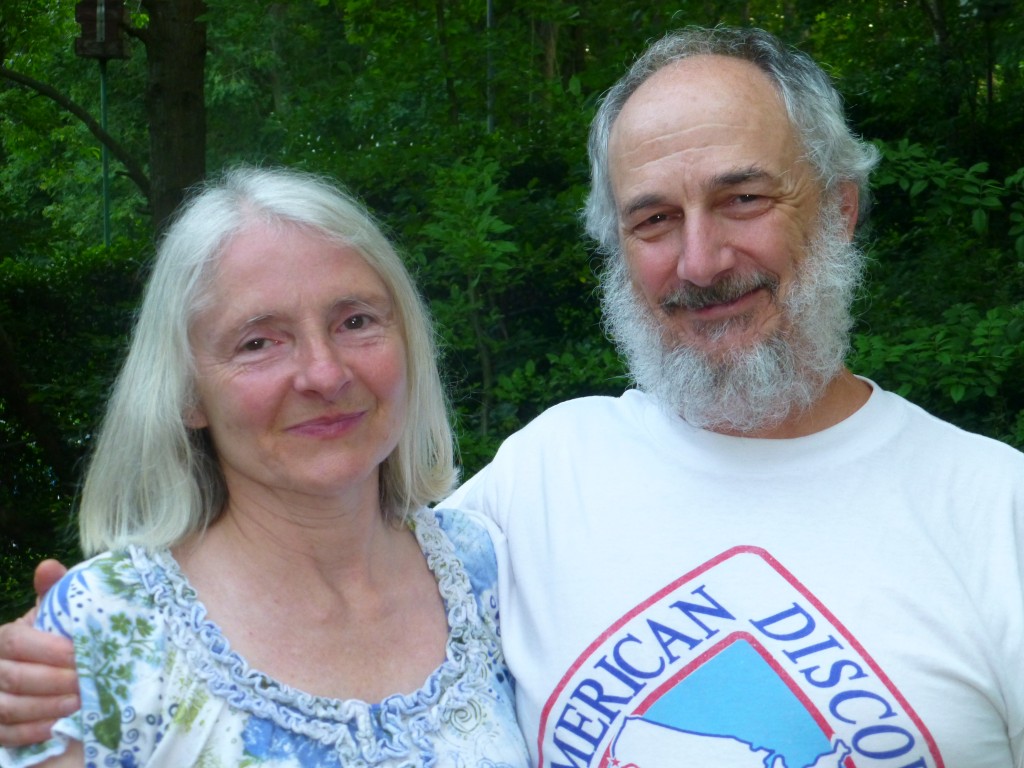We just returned from a road trip to Maryland. I had been apprehensive about this trip for Cindy. She handled all the changes in routine better than I anticipated, yet there were some tough moments. In review I gained some insights regarding Cindy’s condition and care.
We went down mainly to see some old and new friends again: Cindy’s best friend from college; the brain health research team at the UMd; a couple we met while hiking the American Discovery Trail. While there I gave a presentation about our American Discovery Trail journey at the University of Maryland’s School of Public Health. I also was asked to participate in a small group meeting at NASA and we were given a personal tour of the facility afterwords.
Whenever we are outside our home, meeting friends or just acquaintances, Cindy’s health inevitably comes up in conversation, which I attempt to answer in “code” as well as I can. While Cindy appears to no longer know she has Alzheimer’s, these constant allusions to her condition must have their effect on her psyche.
However, the worst impacts on Cindy may be from a seemingly unrelated topic. People assume and ask if I am retired. I probably should just say “yes” to avoid further explanations, but I have an ingrained commitment towards describing things as they are. Still attempting to explain in “code,” I attempt to explain that I am currently a 24/7 caregiver but will return to both hiking and working when conditions allow.
The second worst moment from the road trip seems to reveal that, at least in regards to my current and future situations, Cindy has cracked the “code.” During a moment when she appeared particularly down I said to her: “You know I love you.” She tearfully replied: “not for long.” Ironic. When she first found out she had Alzheimer’s she accepted the “death sentence” associated with the disease well, calmly pouring through her possessions to decide which daughter should get what. It was the reality of continued cognitive decline that got her down. Now the very vague inferences that the end is coming for her may be what ways heaviest.
Ah, but that was not the worst moment. That came during my presentation, which otherwise went over very well and I will provide a link for that in my next post. After performing music and sharing a few stories about our American Discovery Trail journey I opened up for questions. A few related to brain health and I could tell those questions were getting to Cindy a little bit.
One student began her question with: “Since your wife has early onset Alzheimer’s …. “ I quickly squelched the question, but not before the floodgates for Cindy’s tears were released. She started sobbing in her front, corner seat of the auditorium. The presentation was concluded soon after and I sat next to Cindy with my arm around her in a mainly ineffective attempt to calm her. When my attention was turned for no more than a couple minutes Cindy left the auditorium and a little search conducted to bring her back.
Often in darkest moments do we notice the glimmers of light reaching towards us. One of the graduate students on the brain health research team, Theresa Smith, volunteered to be our escort for an afternoon tour on the University of Maryland campus. Theresa rather quickly and effectively got Cindy out of her funk. Instead of holding my hand as we walked the campus streets, Cindy held Theresa’s. The two were giddy and giggly together, sometimes at my expense. At one point I commented that Cindy probably was glad to be listening to someone else besides me. Her response to that was something along the lines of an emphatic “Duh!”
I pair this observation with another made at NASA’s small group meeting. The presenter, Joe Weston, wrote the book “Respectful Confrontation” and the discussion was along those lines. Not rocket science, but a somewhat deep topic. Rather than lose focus, Cindy was engaged during the entire meeting. Even me, with my admonitions on this blog not to underestimate what a person with Alzheimer’s is perceiving, have been underestimating Cindy.
Not long ago I mentioned on this blog that Cindy may be going to adult day care soon. I wondered if the timing was a bit late in terms of what she might get out of the experience. Apparently, she just might get plenty out of the experience, without having to listen to me speak in “code.”
Many thanks to Cindy’s friend Jean and her family, Carson Smith’s family (Tammy, Anna, Ellie and Caleb), Carson Smith’s research team and Kent and Julie McCullough for their great hospitality to us while we were in Maryland.


Thanks for the journey through MD. It was great that the two of you could still go. I’ve always wondered and probably always will what really processes through someone’s brain who has advanced Alzheimer’s — how much, what the triggers are. I’m amazed at the replies you sometime get from Cindy, as if she’s still in the moment and totally with you. Everyone’s different, I suppose. Thanks once again for sharing.